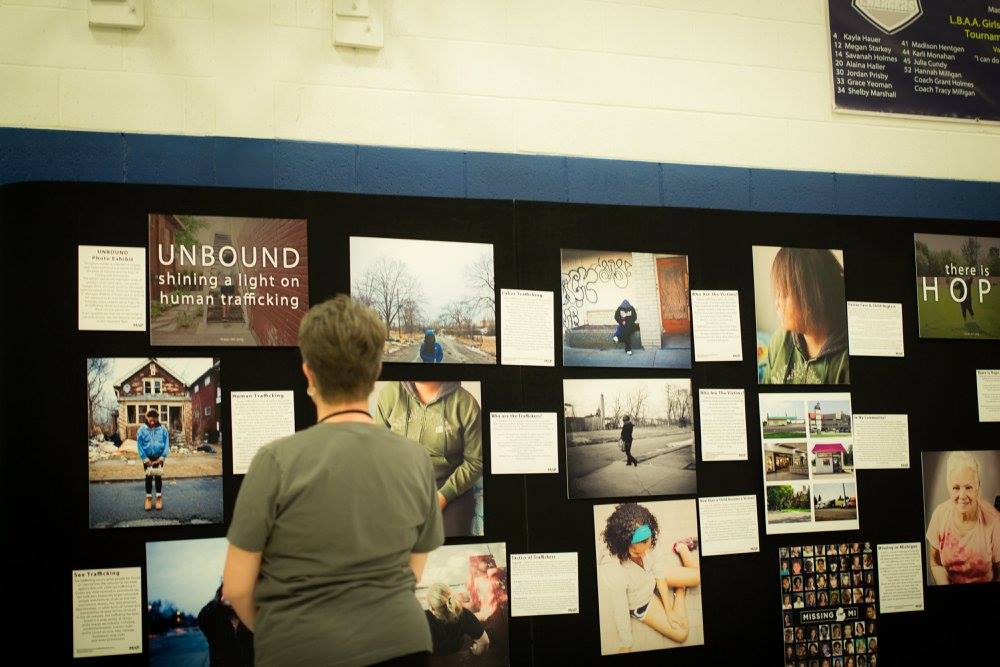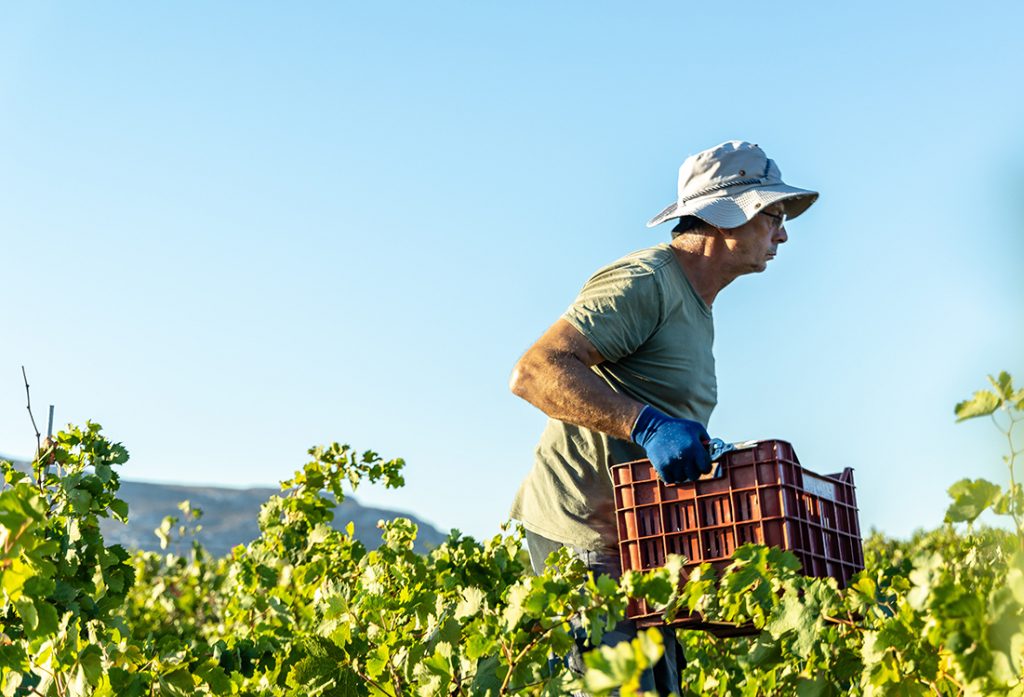Your neighbor was arrested for human trafficking last week. Your mind reels … you moved here because it was safe. Your heart goes out to the victims, you maybe even say a little prayer for them, but this is supposed to happen somewhere else.
That is a very real scenario.
Human trafficking isn’t afraid of zip codes and property values. It happens, unknown, in front of people’s faces, and is crisis in Michigan.
It is regarded as the second largest criminal enterprise after drugs in the state, says the Michigan Department of Health and Human Services. It impacts every community in Michigan across age, gender, ethnicity, and socio-economic backgrounds.

For the better part of a decade, the Michigan Abolitionist Project (MAP) has battled human trafficking by sharing information the public needs to be aware of the issue and be part of the solution.
“There is progress being made in Michigan,” says Kathy Maitland, MAP executive director.
MAP is based on the idea the more people who are informed, the more progress will be made.
Still, the battle has heated up with the COVID pandemic, in Michigan and elsewhere.
A report by The Polaris Project, one of the most trusted and cited national non-profits that deals with human trafficking, found a 40 percent increase in crisis trafficking reports nationally in the month following the shelter in place order. Crisis cases are ones were victims need transportation, hospitalization, or law enforcement are needed within 24 hours.
“COVID challenges resulted in many people being more vulnerable, loss of jobs, income, etc.” says Maitland, MAP.” “So, I think it is understood that when we increase vulnerabilities, exploitive people take advantage, and we can expect exploitation to rise.”
MAP stresses education and prevention through speaking engagements by Maitland and local community groups throughout the state. For the most part MAP has adapted to the pandemic, giving talks online, but some of the more hands-on and interactive elements have been limited.
To further its outreach MAP engages community groups, which consist of citizens who work together to address slavery in their community. The groups are led and organized by local volunteers.
Many of the members of MAP community groups work with or volunteer at shelters or organizations that help those who escaped human trafficking.
The different MAP community groups use whatever creative skills they can to raise awareness.
The Ann Arbor group has gone around to hotels and local schools. The Port Huron group makes sure nurses are up to date on the signs.
Talking to schools can help prevent young people or their friends from falling victim.
Some take it further.
In one case, Bethann Cote and her husband opened their home to women who come in off the street after Maitland spoke at her church and opened her eyes to the problem.
“We were blown away that this is not a choice that a woman or individual makes to be on the streets and that they are coerced. They are tricked and enslaved in this lifestyle,” Cote says on a MAP video. “We felt God tugging on our hearts to do something.”
Their home acted as a temporary residence before the women move on to a residence more equipped for their needs.
Maitland says the Cotes’ decision to open their home is a rarity because of the trauma the women have suffered and the vast amount of care they require to recover. It’s a reality Cote witnessed first-hand. One woman’s trauma was so deep, she could not shower or be left home alone.
Knowing what signs to look for can help not only stop, but also prevent, victims from forced labor, sexual slavery, or commercial sexual exploitation.
One of MAP’s most vital goals is to shrink the education gap and make people more aware. The signs Maitland tells people to look for include:
- Someone else speaks for a person
- Someone is controlled by someone else
- An individual who doesn’t have money on them
Many times, human trafficking starts off with a girl or woman having a boyfriend who becomes a controller and grooms her to be trafficked. Many of these cases are never reported.
While an estimated 1100-4000 individuals are enslaved in human trafficking in Michigan, only 364 cases were reported in 2019, according to MAP.
While people from all communities can become victims, not all groups are at equal risk, says Maitland. Women, people of color, runaways, kids in foster care, and members of the LGBTQ community are at the most risk.

The most common places for labor trafficking are domestic work in hotels, massage parlors, nail salons, small businesses, large farms, and factories, according to the Michigan Department of Health and Human Services.
The most common places to find victims of sex trafficking are residential brothels, escort services, massage businesses, strip clubs, and street prostitution as well as online or digital ads. Any minor involved in commercial sex, regardless of use of force, fraud or coercion is considered trafficked in Michigan.
Nurses and hotel workers are likely to encounter these victims. Prepping or just reminding them of the signs could mean more reported cases.
Experts believe the number of labor trafficking cases in Michigan could equal the number of sex trafficking cases, even though the sex trafficking cases get more media attention, according to MAP.
Human trafficking infects so many parts of society worldwide for one reason – money. It is the second most profitable criminal business in the world and makes $150 million at the expense of 40.3 million people globally, with 81 percent in some form of forced labor, according to the International Labour Organization.
Specific signs for labor trafficking can be found here.
The National Human Trafficking Hotline’s website can be found here.
Michigan is at risk for human trafficking – both sex and labor trafficking.
 Former Attorney General Bill Schutte collaborated with the legislature to form the Michigan Human Trafficking Commission, which led to the enactment of laws designed to shield minor victims from prosecution, give them treatment and crack down on criminals involved in the illegal sex trade.
Former Attorney General Bill Schutte collaborated with the legislature to form the Michigan Human Trafficking Commission, which led to the enactment of laws designed to shield minor victims from prosecution, give them treatment and crack down on criminals involved in the illegal sex trade.
MAP supports the work of the Commission and participates in and/or promotes the work of local task forces and coalitions in the state.
Schutte compared the problem to spousal abuse, which has often gone unreported, and encouraged people to be aware of the signs and report suspicious activity.
The issue transcends politics.
Current Attorney General Dana Nessel continues to push for legislation to combat human trafficking. In early March she testified before the House Judiciary Committee in support of a package of human trafficking bills recommended by the Michigan Human Trafficking Commission.
The 26 bills strengthen tools to hold traffickers accountable, expand protections for victims of trafficking and fundamentally alter the criminal justice system’s approach to commercial sexual activity, otherwise known as prostitution.
 “If we adopt these policies in our laws to protect survivors and help meet their intense needs, we can break the cycle of silence demonstrating to traffickers their tactics will no longer prove successful,” Nessel said in her testimony.
“If we adopt these policies in our laws to protect survivors and help meet their intense needs, we can break the cycle of silence demonstrating to traffickers their tactics will no longer prove successful,” Nessel said in her testimony.
Since 2011, the Department of the Attorney General has provided training to more than 1,000 professionals and filed charges against more than 30 individuals for human trafficking – all leading to arrests. It has successfully convicted 24, with cases against several additional defendants currently pending, according to the Department.
In the end, the more people aware of the signs, there more victims will become survivors.
Theresa Flores was just 15 years old when she was sold into an underground crime ring in Birmingham and forced into sex slavery. For years, she was taken of her home a couple nights a week and delivered to houses in Rochester Hills, Bloomfield Hills, Birmingham, Southfield and taken to basements with bedroom where man after man would come.
Flores, now 53, was able to escape and break free after someone intervened at a motel and called police, she said in a story she shared with WXYZ in 2019.
While Flores was able to escape thanks to someone who knew the signs, for many, human trafficking is not a horrible memory, but a nightmare they face every day.
MAP is committed to providing the tools to help end that nightmare.
For more information on the Michigan Abolitionist Project (MAP) click here or go to its Facebook page. For more information on human trafficking in Michigan, please click here.
To read the Michigan Human Trafficking Commission report, please click here.


